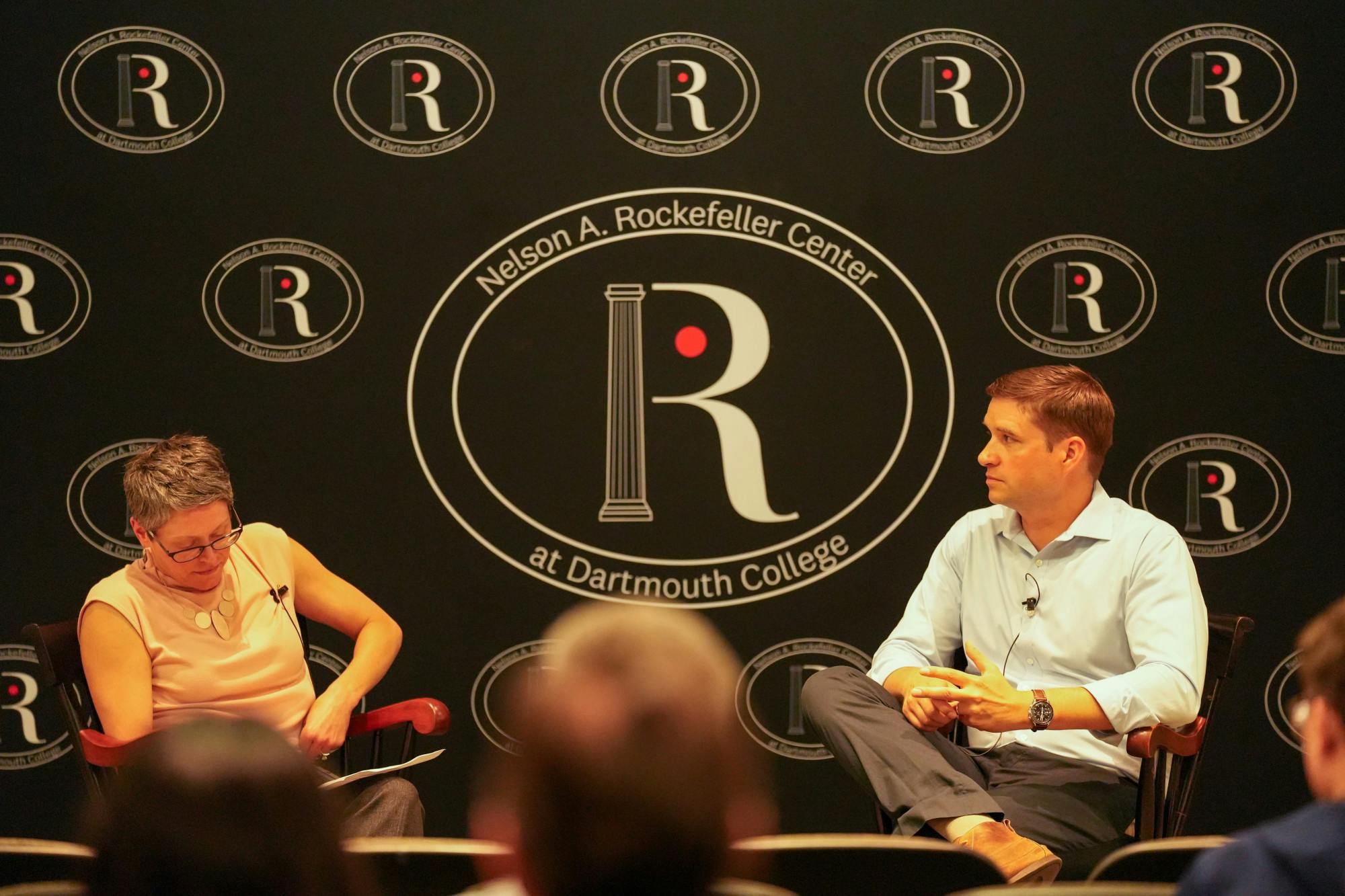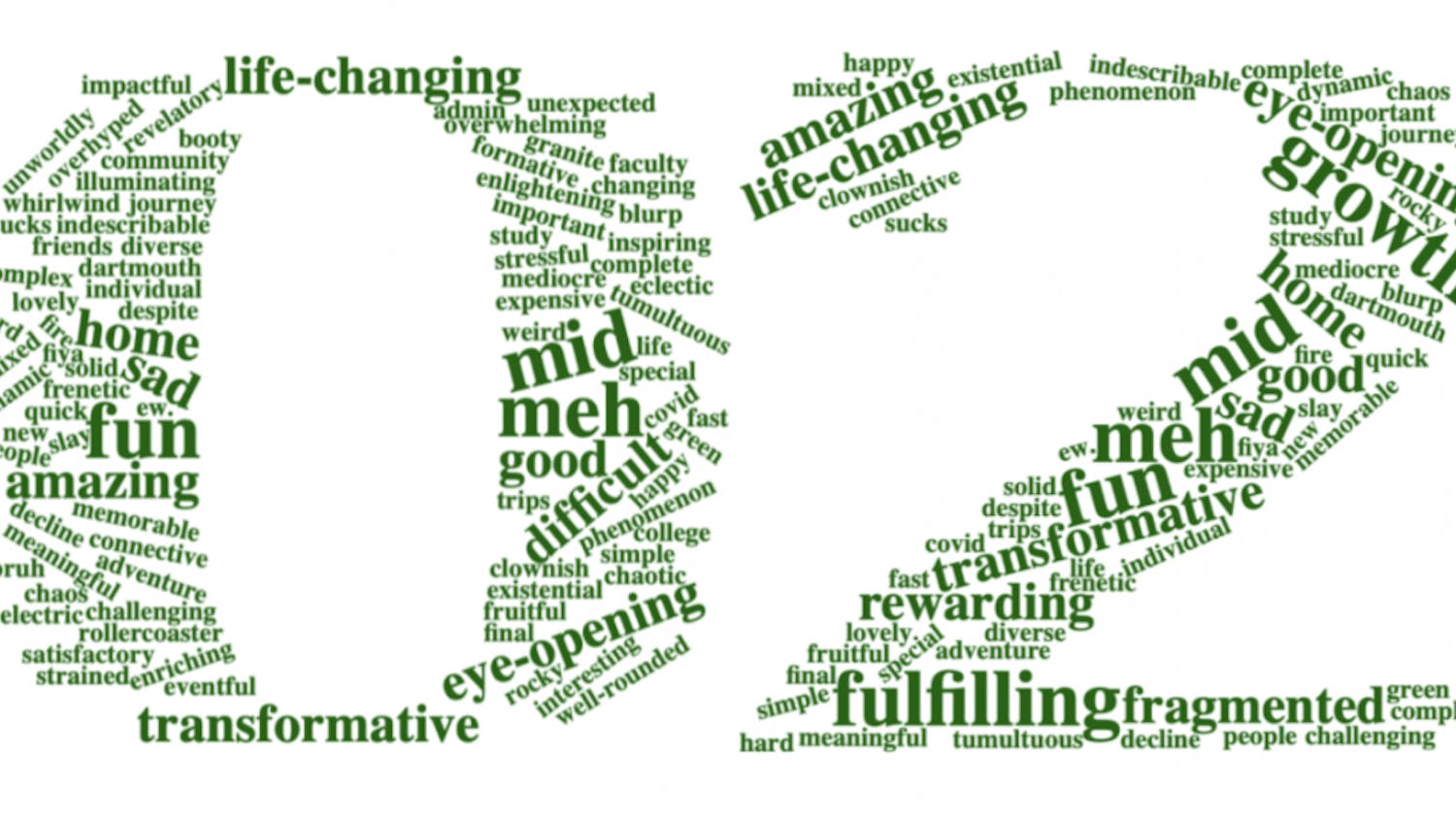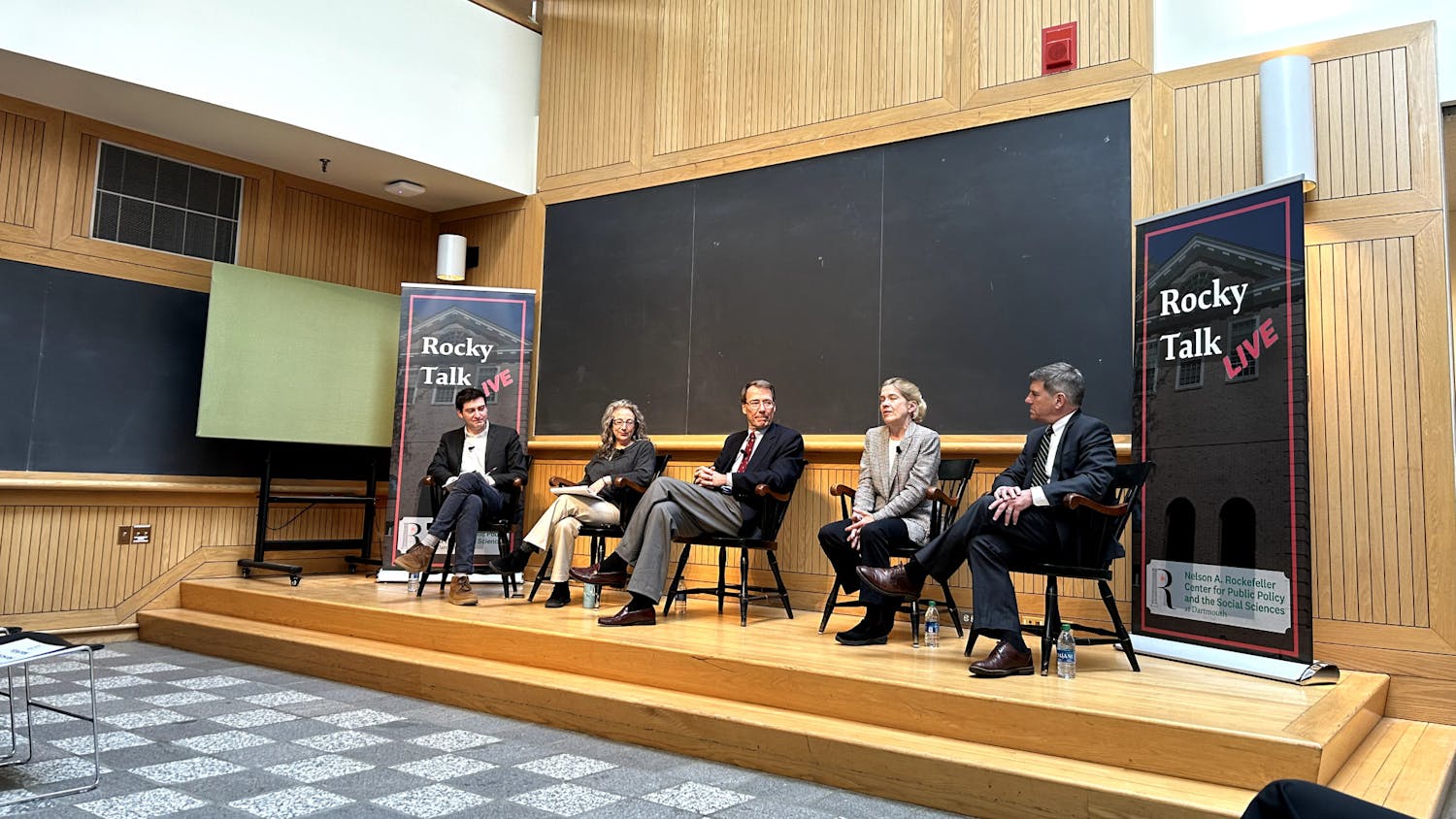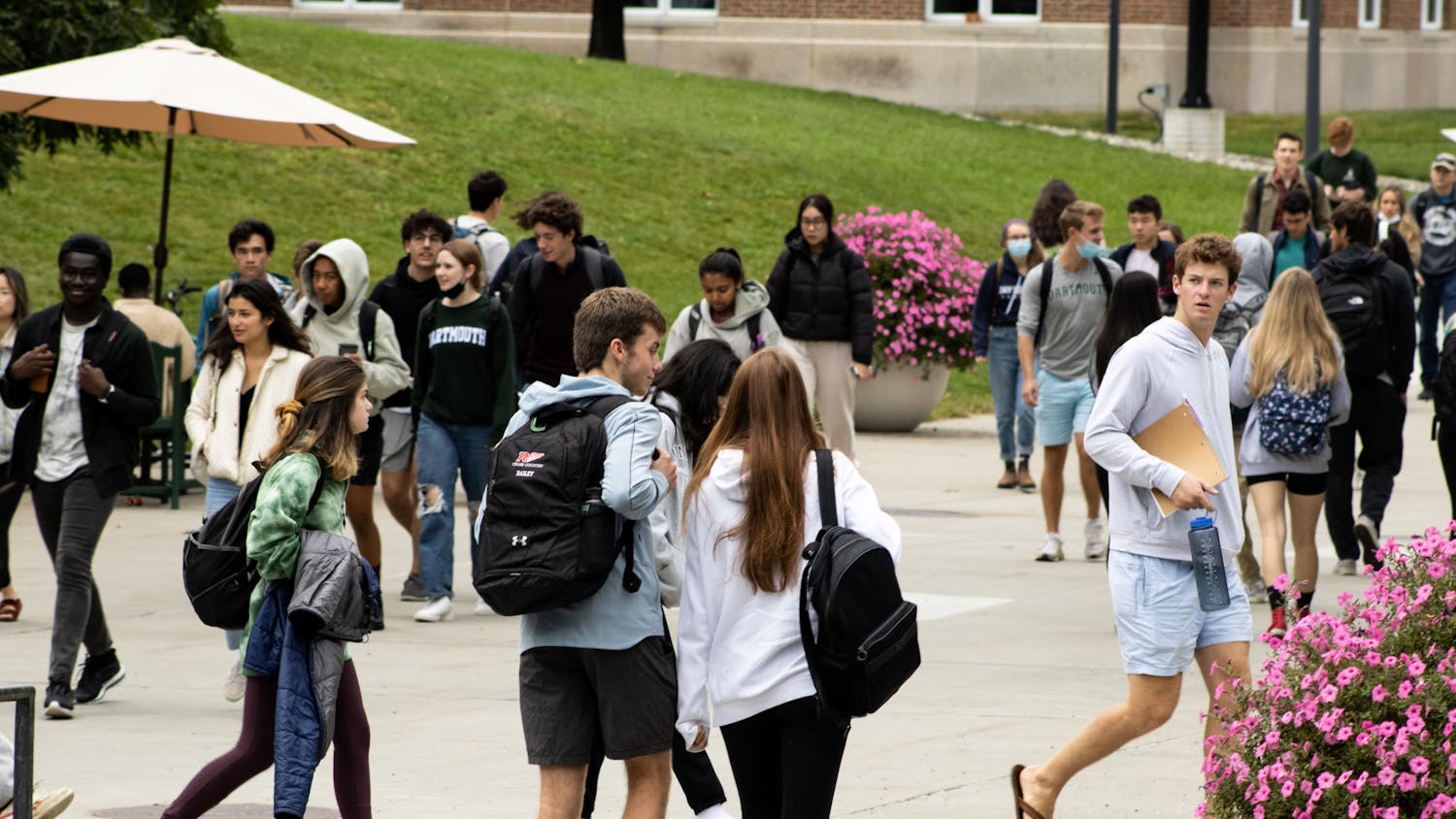On June 26, the Rockefeller Center for Public Policy and Montgomery Fellows Program co-hosted author and computer science professor Cal Newport ’04 for a discussion on technology and productivity. Approximately 80 people attended the discussion, which was titled “Rethinking Work in the Age of Distraction” and moderated by government professor Jennifer Jerit.
The event opened with Rockefeller Center director Jason Barabas ’93, who shared an anecdote about how the number of emails and Slack messages he sent and received that day contributed to his time management problems. Barabas introduced Newport’s books — “Deep Work,” “Digital Minimalism” and “A World Without Email” — which discuss technologies that distract from work and provide advice for focusing intently on cognitively demanding tasks.
“I think anybody in a CEO type of position should read [Newport’s] books because they might be able to change the structure of their workforce, and maybe [allow workforces to] rely less heavily on tools like Slack that distract people,” Dara Casey ’25 said.
Casey said she is enrolled in a class Newport is teaching this summer, COSC 19.01, “Writing about Technology.”
While at Dartmouth, Newport studied computer science while writing for The Dartmouth and editing for the Jack-O-Lantern. Newport said that his liberal arts education at Dartmouth set him up to work in the intersection of technological tools and how humans interact with them.
Jerit asked Newport how Dartmouth can help students cultivate the deep work skills that he discusses in his books, which he defines as “professional activity performed in a state of distraction-free concentration.” He explained that the first step in accomplishing deep work is recognizing the value of undistracted work over other forms of work.
“When you study, you should just be studying without the instant messenger open, without the phone,” Newport said. “When you are in class, you should be there trying to take in the information. You should become comfortable reading a book for a while without switching your attention away.”
As a graduate student at the Massachusetts Institute of Technology, Newport mentored college students in the Boston area to build up the ability to concentrate over longer periods of time. First students would attempt to work for 30 minutes without distractions, but if they failed to do so, the 30 minute time would restart. After two weeks of becoming comfortable with this interval, students would add 10 minutes to the timer. At the end of the semester, some students were able to concentrate for 90 minutes without distractions.
“The state of work is a state of constant distraction these days, and every time you’re distracted, you’re taken out of that deep thought,” Casey said.
Newport said that he first arrived at Dartmouth without a laptop or cell phone. At the time, those who wanted to check their email had to go downstairs and wait for a public computer. Because distracting technologies were not as accessible, students implicitly learned how to focus. According to Newport, the average knowledge worker — someone whose job it is to “think for a living,” such as physicians, lawyers, engineers and academics — checks their inbox approximately once every six minutes.
Attendee Jordan Mann ’25 said that he believes the rise of short form social media like TikTok is part of the attention deficit in the world today.
“We are increasingly wired for that short attention,” Mann said. “How much do we need to change to go back to what’s been practiced for decades? How much does what we are being told need to adapt to how we are changing over the generations?”
Newport calls context shifts — focus switches from one cognitively demanding task to another task — “productivity poison.” In place of these context shifts, Newport suggests docket-clearing meetings in which workers add items to discuss to a document and then meet biweekly with everyone involved to go over them.
“Following rules, waiting to have to do things, deferring interactions — the cost of those are almost always diminutive compared to the cost of having to constantly shift your context,” Newport said.
In response to a question from Jerit about how his strategies have adapted to a busier schedule, Newport said he is adherent of slow productivity, which he defines as working on projects over longer periods of time. Some of the strategies he promoted include seasonality and setting quotas for oneself. For professors, seasonality can mean writing more papers during less busy semesters and turning down journal reviews after fulfilling their quotas.
“I’m a big believer in fixed-schedule productivity,” Newport said. “You fix your schedule in advance… and then you work backward and say, ‘what do I have to do to actually honor that.’”
Mann said that Newport’s suggestions are still achievable for some college students, but it was not an experience he could relate to closely.
“[Newport] was aware of his position as a middle-aged person and a writer, but college operates differently,” Mann said. “You can be slowly productive as much as you want, but it doesn't change the fact that you have your readings due tomorrow.”
Gabrielle Park ’25 said she wishes she could work using slow productivity, but due to the quick turnaround for midterms and papers, the strategy is not feasible.
“I like the idea of slow productivity — it definitely sounds really appealing — but it’s kind of hard to imagine, especially with our term schedules,” Park said.
Mann offered other considerations he thinks should be part of the conversation.
“I think a neurodivergent, mental health angle is an important thing to bring into the discussion of why people are distracted,” Mann said. “Maybe it’s that Instagram just happens to fulfill a need that your brain has, and you haven’t found a better coping mechanism. I think framing the situation to be about fulfilling needs is something I’m still practicing.”

Arizbeth Rojas ’25 is a managing editor of the 181st directorate from Dallas, TX. When she’s not listening to DJ Sabrina the Teenage DJ or planning her next half marathon, you can find her munching on a lox bagel.




